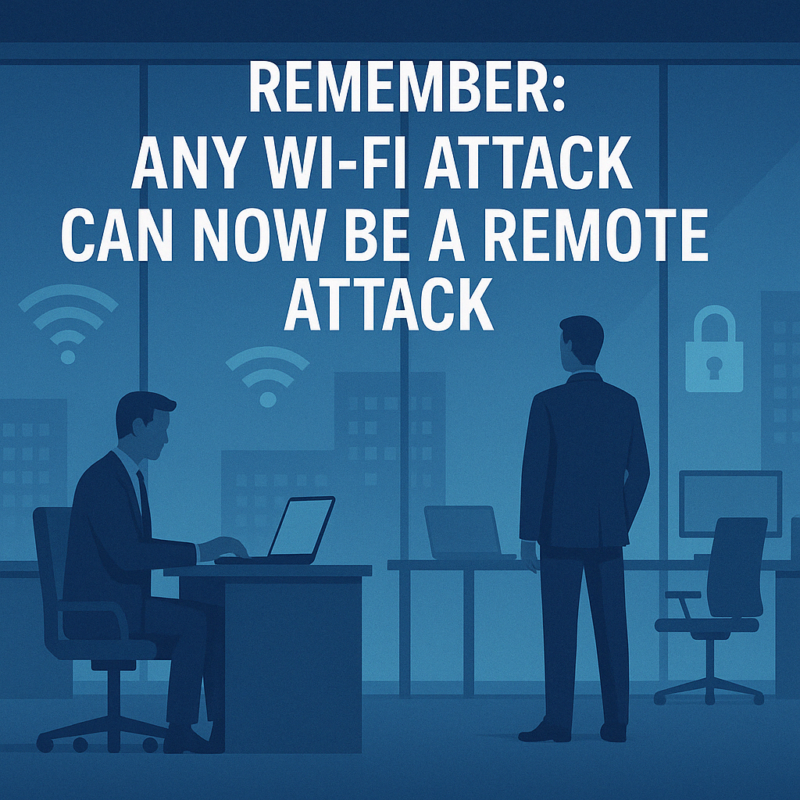“Any Wi-Fi Attack Can Now Be a Remote Attack”
By the AirEye Research Team
Inspired by Mathy Vanhoef’s insights
1. Objective
Wireless threats are no longer bound to physical proximity. Pre-auth vulnerabilities, beacon spoofing, and rogue access points can now be exploited remotely — even globally — thanks to cloud relays, malicious proxies, and antenna-for-hire models. This blog post outlines a 2025-ready threat model to help organizations secure their wireless airspace against this evolving threat.
2. Assumptions
- Enterprise networks use WPA2/WPA3, 802.1X, and RADIUS for wireless access.
- Attackers have access to remote infrastructure (proxies, relays, cloud VMs).
- IoT, OT, and medical devices with Wi-Fi interfaces are present in the network.
3. Evolving Threat Landscape
Here’s how today’s threats manifest, including references to recent AirEye research:
| Threat | Vector | Impact | Modern Evolution |
|---|---|---|---|
| Pre-auth Remote Wi-Fi Exploits | Exploited over VPN/web without proximity | Device compromise | Driver stack bugs via malicious frames |
| Rogue Access Points | Fake APs proxied into enterprise | Credential theft | Now launched via antenna-for-hire |
| SSID Stripping | Manipulated SSID display | Deception, phishing | AirEye Research |
| FragAttacks | Fragmentation bugs | Access bypass, injection | Details |
| Wi-Fi Spoofing with RLO | Misleading network names | Connects to attacker AP | Demo & Analysis |
| OWE Transition Exploits | Expose hidden networks | Unauthorized access | Next-gen RAPs |
4. Real-World Attack Scenarios
- Remote Rogue AP Injection: Cloud-hosted relay enables auto-connect to malicious AP via compromised IoT device
- SSID Stripping: Spoofed network names trick users into connecting
- Antenna-for-Hire: Nearby devices (cameras, routers) broadcast attacker payloads
5. Mitigation Strategies
- Use WDR (Wireless Detection and Response – formerly know as NACP) solutions to monitor wireless airspace anomalies, risks, threats and attacks.
- Patch Wi-Fi firmware and drivers across all endpoints
- Disable auto-join for unknown SSIDs
- Zero-trust onboarding for all IoT/OT/IOMT devices
- Audit microsegmentation assumptions — isolation doesn’t block airspace-level threats (Why not)
6. The Bottom Line
Any Wi-Fi attack can now be a remote attack.
— Mathy Vanhoef
The wireless airspace must be treated as a critical part of your attack surface — one that attackers can now reach without ever being nearby. Are you watching your airspace?
→ Need visibility? Talk to us at AirEye

